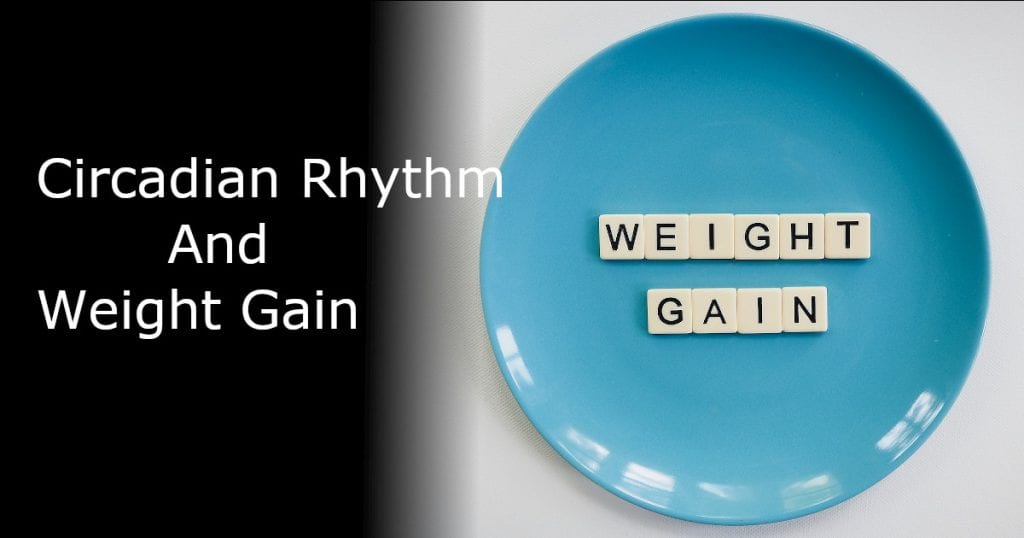If scrolling through Bodyweight Heaven has been a staple in your internet fitness routine, you surely have an appetite for information that can help to turn your ultimate body goals into reality.
We’ve recently dropped a goldmine of interesting facts about the circadian rhythm and its impact on human performance. This time, we’ll explore the circadian rhythm and weight gain. Could it be a major missing factor in the lean physique puzzle?
Yup, you’ve heard that right. Seems like it pays to keep an eye on your inner clock as much as you do to your weighing scale!
Hop on as we digest a bunch of anatomical geek talks into practical tips for taking control of your bodyweight.
Contents
How does circadian rhythm work?

Let’s have a quick review, shall we?
From a physical perspective, your circadian rhythm determines when your is revved up and energized for maximum productivity, and when it’s time to rest and recover. Even without you knowing it, what we often call “the body clock”, guides our feeding time, sleep cycle, and many other physiological processes.
Do you glow with brimming energy as the sun waves hi? You’re most likely a morning lark. Meanwhile, those who better vibe with the moon belongs to the night owl tribe.
It’s not just a matter of preference. Circadian rhythm stems from the pattern through which the brain processes signals such as light, temperature, and magnetism into commands for hormone production. Genetics, lifestyle, food, and medications you take can also affect your body clock.
It’s important to maintain a healthy circadian rhythm if you want to keep your neurological and physical functions in top shape. Disrupting it can take a toll on your attention, cognition, and memory. Even worse, there are several health complications (e.g. diabetes, cancer, sleep disorders, etc.) that you might catch.
So, how does your circadian rhythm influence bodyweight?

Studying circadian rhythms is a superb strategy for scheduling workout sessions. After all, it can predict the times of the day when your body performs best.
But did you know that you can also use it as a guide for taking control of how heavy you’d be?
Let’s hear it from our folks in the research industry and investigate three ways that your circadian rhythm influences your bodyweight.
Effects of feeding time
In getting that ideal body figure, paying attention to when you eat is as essential as watching what you eat.
Whenever we consume food, our pancreas releases insulin to control the glucose levels in our blood. The logic is pretty simple. If you eat at such irregular intervals, expect that your body’s schedule for insulin production can be just as topsy turvy.
Here’s how it works.
In its duty to design the optimum timing for your physical and psychological performance, your circadian rhythm has to predict the availability of food.
This is why strategic fasting receives so much praise as a weightloss technique. Entraining your body through feeding times is a great technique. It allows you to burn body fat better and perhaps even remove some of those stubborn spots that you just can’t seem to remove!
Feeding times can also affect your workout results. Researchers are presently investigating the most complimentary schedules for eating and exercising, but it’s proving to be quite a challenge. Regardless, these studies follow the principle that when you eat in relation to when you exercise has a cascading effect on your body. Directly, this means, how you break down macronutrients and turn them into usable energy – rather than stored as fat.
There’s a study that advocated for hitting the gym during fasting times. With the amount of plasma in your blood at its lowest, your body will compensate by producing adrenaline to support physical activities. That leads to an extra energy boost without the need to fill up on food.
Effects of cortisol levels
Cortisol is among the hormones responsible for signaling your body that it’s time to wake up. By default, it’s concentration is at its highest at 8:00 AM and falls to its lowest at 3:00 AM.
More than being one of the many guides of your sleep/wake cycle, cortisol also facilitates metabolic processes including the breakdown of stored fat and sugar. As a result, high levels greatly can reduce your muscle and lean body mass as your body consumes energy.
If you’re in a quest for major weight loss, count it as another reason to synch your day and night cycles to maximize your energy burn and weight loss.
Prediction of weight-loss program effectiveness
Any fitness enthusiast is aware that a single program does not guarantee results for everyone. What worked for your gym mentor might only cause frustration for you!
A study from the National Library of Medicine explored if biological variables controlled by the circadian rhythm can predict if a person will respond positively to a weight loss intervention program. Specifically, they looked into wrist temperatures and actimetry (a method for monitoring rest/activity cycles) measurements.
For their test subjects, the researchers rounded up 85 obese women who were made to follow a weight-reduction plan.
The results? They found that those with a more stable circadian rhythm enjoyed greater results. Meanwhile, those who had more variable sleep/wake cycles and fluctuating body temperatures lost less weight even though they were subjected to the same program.
Take note! You might want to check your circadian rhythm patterns and add this to your body performance routine as well.
Can you use circadian rhythm to control your body weight?

We’ve established that circadian rhythm can indeed influence weight gain. This leads us to another interesting question – can control over your circadian rhythm be the key for tweaking your bodyweight?
Let’s investigate if this is possible for both weight loss and weight gain goals.
Weight loss: Intermittent fasting
Earlier, we have explored how timing can make or break your diet plan. Note that our body’s natural rhythm is greatly influenced by light. Thus the rise and fall of the sun. However, isn’t it ironic that we schedule our meals around our daily activities and lifestyle instead?
An average American’s eating cycle lasts for over 15 hours each day, and it can be quite erratic. Don’t deny it – there are times when you have skipped lunch just to beat a deadline. There are also people who are so fond of fixing themselves a late snack as power up for an all-nighter.
At this point in this article, it should be clear that a disrupted circadian rhythm is an enemy of weight loss. All it takes is two nights of eating after dark or sleep deprivation to mess things up.
In order to effectively shed those unwanted fats, you have to sync your feeding times with your body’s natural order.
The key? Intermittent fasting. In simple terms, it’s a technique that limits the time you’re allowed to eat each day.
Enter Fasting Windows
You can try giving yourself a 12-hour window. At any point beyond that, you should not consume anything. Resist any temptation! Here are some tips that can get you through your first attempts to intermittent fasting:
- Manage your perception. Try to realize that your body’s wants are just forces of habit that you can change.
- Adjust your eating behaviors according to your eating schedule. Instead of eating as soon as you wake up, you can consider bringing packed breakfast to work.
- Keep yourself hydrated throughout the day with calorie-free drinks. Feeling an urge to eat out of your window hours? Trick that temptation away by gulping down a glass of water.
- Do not obsess over the thought of food during your fasting period! Planning for your next meal will only make it harder to wait.
As you get comfortable with this new routine, work your way down to the ideal 8-hour period in between 9:00 AM and 5:00 PM.
It has been found that committing yourself to two months of intermittent fasting can do wonders for your weight loss goal, endurance training, and even your overall physical and psychological health. Optimum blood sugar levels. Fewer migraines. Reduced anxiety or panic attacks. Sounds like a worth it sacrifice, don’t you think?
Weight gain: Disrupting circadian rhythm
If the secret to losing weight pronto is maintaining a stable circadian rhythm, we bet it’s easy to guess what would happen to people with a disrupted body clock.
Our friends from Stanford University conducted a study to prove this theory. They tried to cause disturbance to mice’s biological patterns by implanting a bead that constantly releases a dose of steroid. They described its effect as similar to what we feel when we experience jet lag.
The findings showed that these mice developed more fat cells than usual. Meaning, a messed up circadian rhythm can ultimately lead to weight gain.
In humans, disturbances to one’s circadian rhythm can also be voluntarily caused by medication. If you’ve been dying to put on some extra fats, you may consider the timing of taking your weight gain pills.
However, further studies are still needed to find ways to mitigate the harmful effects of disrupting your biological clock. Along with your desired thicker body, you’re putting yourself at risk of varied physical and mental disorders.
Final Thoughts

Studies behind circadian rhythms open a lot of opportunities for the fitness industry. There are the usual factors we consider in building a personal training or diet program. But we can amplify results by studying the optimal timing for exercise, eating, or even taking supplements.
We’d love to hear your bold ideas on controlling bodyweight with our circadian rhythm! Come and let’s have a chat in the comment section below.


